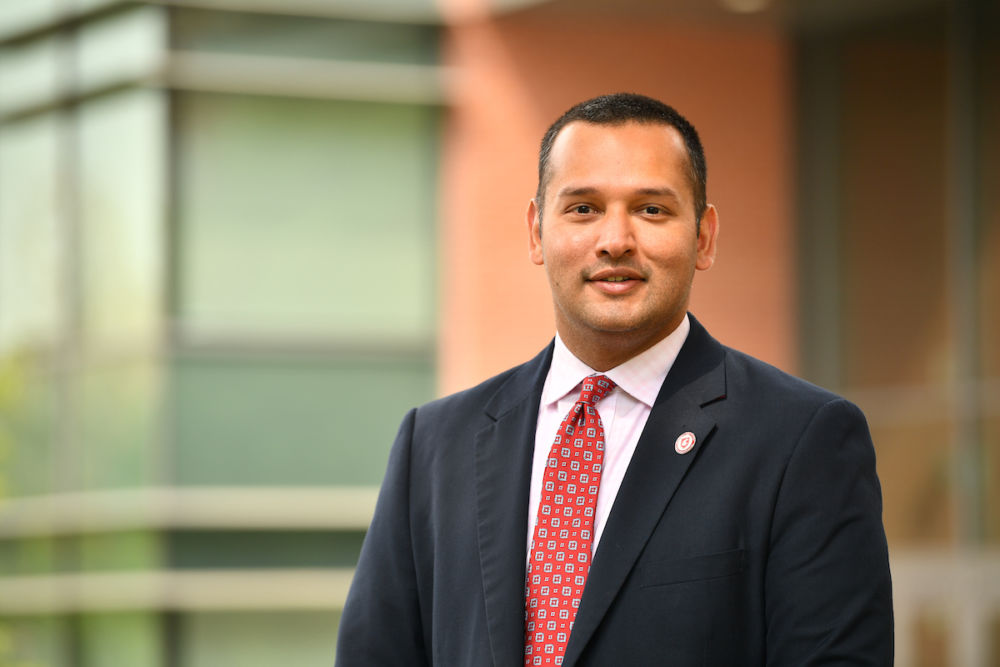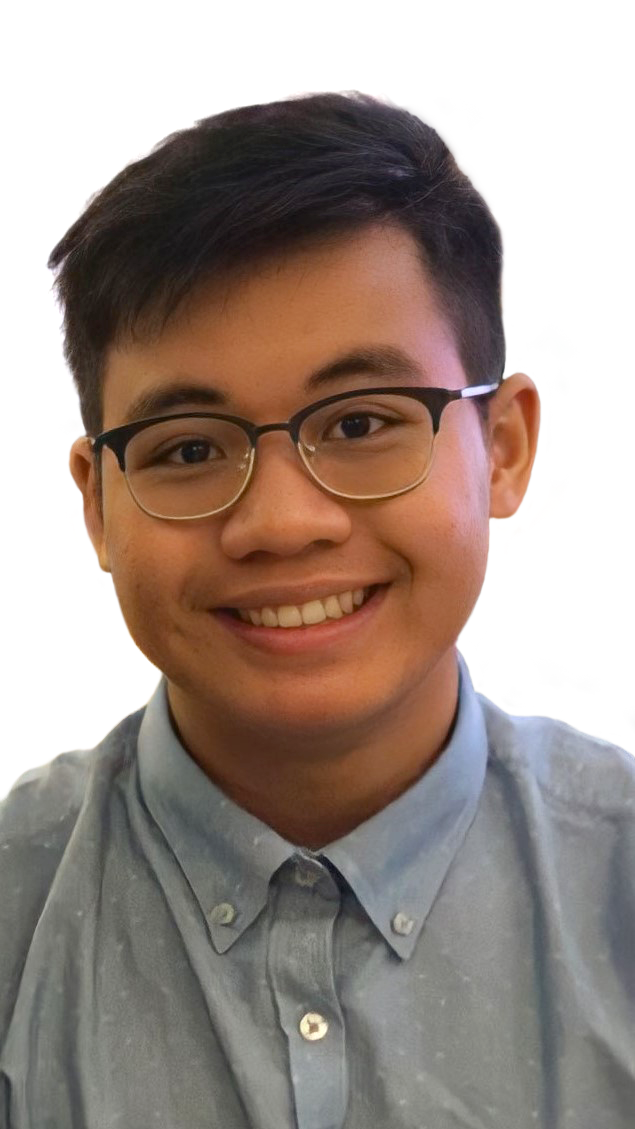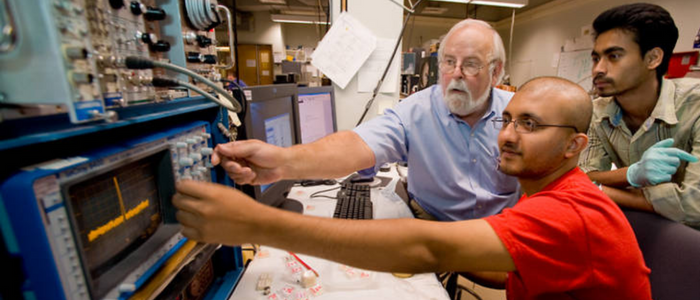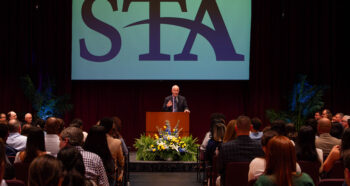Many public colleges and universities in the US award college credit to students in recognition of their Cambridge International AS & A Levels. College credits shorten the time it takes a student to earn a degree and this also saves on tuition costs.
Most undergraduate degrees offered by US colleges and universities require around 120 total semester credits for a four-year baccalaureate level programme, but by studying Cambridge courses and exams, students offered a place at a US university can earn credits that equate to up to a year of study.
Some states, such as Washington, have a state-wide policy for credit of Cambridge International AS & A Levels and also recognise Cambridge IGCSEs and O Levels.
In this article, Daniel Saud, Director of International Programme Admissions at Washington State University (WSU), describes how Cambridge qualifications equate to college credits at his institution.
Sher Chhi Ly, 19, a Cambodian student who started at WSU last year, also tells us his personal story of why he decided to study in the US and how Cambridge has helped him.
Daniel Saud, Director of International Programme Admissions at Washington State University

I’ve been in my current job at Washington State University for two years. I was attracted to the university because of its engagement abroad and because it really believes in internationalising the university. Its International Programs office serves each student who is coming from abroad and reviews their prior academic curriculum to place them at the proper level.
Students with three Cambridge International AS Levels and three Cambridge International A Levels are automatically awarded 24 credits, which equate to their entire first year at university.
For students from impoverished backgrounds and low socio- economic status, that makes a big difference as it reduces the cost of going to college by reducing the length of study.
Cambridge IGCSEs and O Levels are also of value. Cambridge IGCSE/O Level coursework is seen as proof of high school completion and students coming into my university take a placement exam to make sure they are not in a first-year uniform maths course, for example, just because they have to be.
I was a Cambridge student myself [but before Cambridge was so widely recognised in the US]. I was born in Pakistan and attended the public–private all-boys school Aitchison College in Lahore. After I completed my Cambridge O Levels, my family permanently moved to Toronto, Canada, where I attended high school. I took up a place at State University of New York at Buffalo and discovered that if I’d done Cambridge International A Levels, I could have avoided taking the first-year courses, but my high school in Toronto hadn’t offered Cambridge International AS & A Level.
I declared my major as biology and biochemistry and found that the courses repeated what I’d learnt in my Cambridge O Levels. I told my chemistry professor and he spoke to my advisor – I was moved to an advanced level chemistry class and it reduced the number of courses because I got credits. It’s a great testament to the role professors can play in students’ lives.
A year later, I transferred to Hawai‘i Pacific University. This time when I submitted my credits from Buffalo and recognition of my Cambridge O Level courses, I came in as a third-year student. That was when I recognised that the work you do in high school really matters.
The course credits and advanced standing meant that in five years, I was able to do two degrees – I graduated in both Biochemistry and International Studies.
Cambridge students should recognise that what they’ve completed has value and find an institution that does that too.
Sher Chhi Ly, student at Washington State University

I started at Washington State University in April last year. I have chosen to major in computer science and I plan to specialise in either cybersecurity or AI and machine learning.
From the age of nine to 19, I was at school in Cambodia at the British International School of Phnom Penh, where I studied Cambridge IGCSEs and Cambridge International AS & A Levels.
I was keen on technological topics and my interest grew when I was studying my Cambridge IGCSE in ICT (Computer Science).
I then made a good friend through an online video game and he was a MIT CompSci graduate. He recommended that I look for universities in Washington.
One thing that I enjoyed about studying Cambridge subjects was that they were very in-depth, but in a way that is not intimidating. They allowed me to learn complex concepts that would normally be taught in colleges.
My Cambridge qualifications gave me extra college credit so, although the Cambridge curriculum was challenging, it was also very rewarding and prepared me for what was to come in my higher studies here at WSU.
I am a first-generation student as my parents never made it to college so I cannot express how grateful I am to be given this privilege.
The work ethic that I had to adopt when I was doing my Cambridge courses really pushed me to be more diligent and curious about my studies.
There are lots of different opportunities at WSU that I plan to explore, such as being a peer mentor or student ambassador, or representing WSU in an e-sport team. However, nothing is more important to me than maintaining a good Grade Point Average (GPA) and retaining what I learn from classes here, so that is what I hope to do as well.
In the future, I hope to become an intern for a tech firm and acquire hands-on experience in the tech industry. I have faith that with enough hard work, I will one day make it big.
More information
About Washington State colleges and universities: Legislation adopted in Washington State makes public college and university systems consistent and transparent in applying credit and placement policies for advanced academics. All two- and four-year public higher education institutions in Washington State (36 universities and community and technical colleges) post their policies on publicly accessible websites.
State policies in the US: Many US states and systems have established Cambridge International policies to support equity and access in higher education. Find out more about US recognition and credit policies.
For tips on how to receive college credits when applying to US universities, read our blog post: International students get credit to universities too,
Search for recognition and credit policies: Our recognition database is an online directory of worldwide organisations which have specifically provided us with formal written acceptance of Cambridge qualifications and details of their credit policies. Search the recognition database.
Read more: You can read a longer interview with Daniel Saud in Cambridge Outlook magazine (Issue 41, September 2022,) and with Sher Chhi Ly on our alumni web pages.





